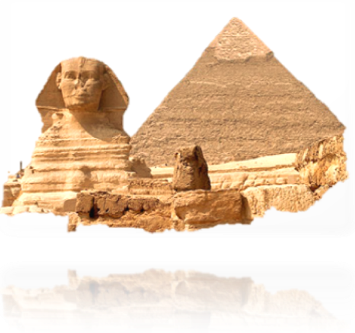Egyptian Traditions
Public modesty in dress and demeanor is highly valued in Egypt. There is a form of dress code that affects women more than men, and that requires clothing that covers all the body but the hands and face.
For women, this most visibly means wearing a head scarf that covers the hair and ears and is pinned under the chin, though there are many other styles ranging from simply covering the hair to covering the entire face.
This is the sense in which veiling exists in Egypt, but the situation is volatile, with a good deal of variety. Men are also urged to dress modestly, but the changes are not as striking, involving for instance loose trousers and long sleeves. For both men and women, the principle is that clothes should disguise the shape of the body.
Another rule of etiquette is that greetings must precede all forms of social interaction. A person joining any kind of group, even of strangers, is expected to greet those already present. In less anonymous situations handshakes are due. Embracing is also common as a form of greeting, usually among members of the same sex.
People are generally addressed by their given name, often preceded by a title of some kind (' am, or uncle, is the all-purpose title for men; others include hajj for a pilgrim returned from Mecca or simply for an older man, duktor for a person with a doctorate, and muhandis for an engineer). To address someone by name alone is impolite.
One important rule of etiquette is to treat guests cordially and hospitably. An offering, usually tea or a soft drink is the least a visitor expects. The first drink is sometimes called a "greeting." Cigarettes are often also offered as hospitality.
In general, young defer to old and women to men. Members of the younger generation are expected to show signs of respect and not to challenge their seniors and must use the special terms of address for aunts, uncles, and grandparents, as well as for older nonrelatives. Juniors should not raise their voices to elders, nor should they remain seated while an older person is standing up. With increasing disparities between classes and the spread of patronage ties, there is inflation in deferential terms of address. This includes the resurgence in the use of terms that were previously official titles but were abolished after 1952, such as Pasha and Bey.
Egyptians celebrate a naming ceremony normally one week after a baby's birth; this is a mixture of Islamic (or Coptic) and "traditional" elements, and is basically a family celebration to incorporate the newborn into the family.
retrived fom http://www.everyculture.com/Cr-Ga/Egypt.html
Back
|
